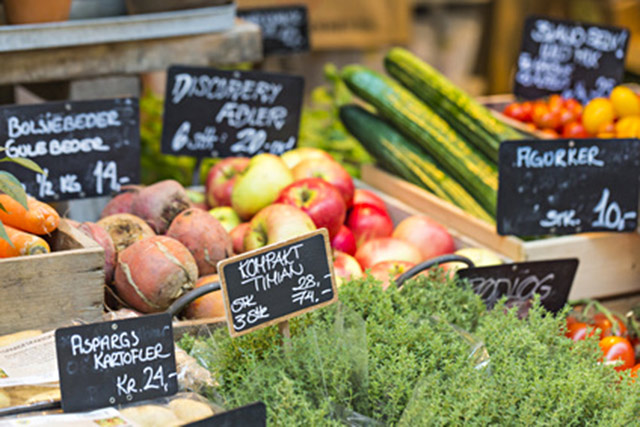Denmark is becoming the first organic country ever. There are so many reasons to eat organic food. First, let’s take a look at the benefits of eating organic.
Less exposure to pesticides
First of all, organic foods reduce exposure to pesticides. A new study from Boise State University showed that organic foods significantly reduce pesticide exposure.
“For most Americans, diet is the primary source of OP pesticide exposure,” explained Cynthia Curl, the lead author in the study. “The study suggests that by eating organically grown versions of those foods highest in pesticide residues, we can make a measurable difference in the levels of pesticides in our bodies.”
More nutrition
Organic foods also typically contain a higher concentration of vitamins and minerals.
A 2010 study published in PLOS One showed that organic strawberries contained more nutrients than conventional strawberries.
According to an article from Mother Earth News, organic free-range eggs are more nutritionally rich when compared to commercial eggs. They contain about two-thirds more vitamin A, two times more omega-3, three times more vitamin E, and seven times more beta-carotene.
Denmark is becoming the first organic country ever
According to Denmark’s Food and Agriculture Minister Dan Jørgensen, their plan to make Denmark all organic is incredibly ambitious.
Denmark has always been a leader in organic food and farming. In fact, they are the top country in the world for organic food consumption. Denmark’s organic food exports have increased by 200% since the year 2007. To put that in perspective, only 1 percent of American farms are organic.
“In order to achieve our goals, which are the most ambitious in the West, the public sector needs to lead the way,” Jørgensen told The Local Denmark. “With Økologiplan Danmark [Organic Denmark], we will strengthen cooperation between municipalities, regions and ministries with a long line of new initiatives. We will commit ourselves to, among other things, have more organic items on the menu in canteens, hospitals and daycare institutions.”
How will they achieve this goal?
• Restructure the countries organic regulations
• Require organic farming and help farmers transition to organic
• Allocate funds to help public institutions use more organic products
• Incorporate organic farming and nutrition information in education
• Serve organic food in cafeterias
Note: None of the information in our website is intended to diagnose, treat, cure or prevent any illness or disease. The content on our website is for educational purposes only.
DON’T FORGET to sign up for our weekly newsletter to get our latest articles, updates, free recipes and giveaways.
Are grass-fed and organic foods really worth it?
Amritapuri Ashram goes organic: A story of love, organic food and healing.
Frozen food company Amy’s Kitchen is starting an organic drive thru.
REFERENCES:
1. “Study Helps Predict Pesticide Exposure in Diet.” Boise State University. Boise State University, 05 Feb. 2015. Web. 20 Oct. 2016.
2. “Will Denmark Become the World’s First 100% Organic Country?” EcoWatch. EcoWatch, 27 June 2016. Web. 20 Oct. 2016.
3. “Denmark Is on Its Way to Becoming an Organic Country.” Food Revolution Network. Food Revolution Network, 06 May 2016. Web. 20 Oct. 2016.
4. “Fruit and Soil Quality of Organic and Conventional Strawberry Agroecosystems.” PLOS ONE. PLOS ONE, n.d. Web. 20 Oct. 2016.
5. “Meet Real Free-Range Eggs.” Mother Earth News. N.p., n.d. Web. 20 Oct. 2016.
6. “Denmark Launches ‘most Ambitious’ Organic Plan.” The Local Denmark. The Local Denmark, 30 Jan. 2015. Web. 20 Oct. 2016.

















